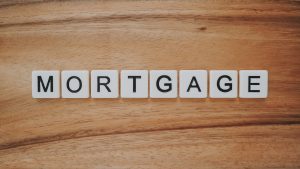
Obtaining a mortgage can be challenging for individuals with bad credit and low income. Traditional lenders often require a good credit score and a steady income to approve a mortgage application.
The good news is that there are high risk mortgage options available in such situations. The objective of this article is to examine some of these high risk mortgage choices and go through their pros and cons as well.
Subprime Mortgages
Subprime mortgages are designed specifically for people with poor credit scores. A higher interest rate and fees are associated with these mortgages. It also reflects an increased risk on the part of the lender.When thinking about subprime mortgages for borrowers with bad credit, it’s crucial to take the long term financial effects of increased interest payments into account.
Adjustable Rate Mortgages
Adjustable-rate mortgages, or ARMs, are another high-risk option for borrowers with bad credit and low income. ARMs typically offer a lower initial interest rate for a fixed period, usually three to seven years.
After this initial period, the interest rate adjusts periodically based on market conditions. While ARMs can provide temporary relief by offering lower initial payments, borrowers should carefully consider the potential for increased payments in the future.
Federal Housing Administration
The Federal Housing Administration insures high risk mortgage option with the goal of assisting low-income individuals in purchasing a house. FHA loans allow borrowers to put down less money and have less stringent credit standards. Borrowers are obliged to pay a yearly fee in addition to an upfront mortgage insurance.
Hard Money Loans
Borrowers with poor credit and low income who are unable to get standard mortgages have the option of applying for hard money loans. These loans are typically offered by private investors or lending companies and are secured by the property itself.
Hard money loans often come with high interest rates and short repayment periods.They can be helpful for borrowers who want rapid funding. But due to the possibility of hefty fees they should be used with caution. Therefore, it is crucial to research and work with reputable lenders like PFG: hard money lenders you can trust for their commitment to ethical practices and transparency.
Lease to Own Programs
Lease to own programs provide an alternative path to home equity for borrowers with bad credit and low income. In this arrangement the borrower leases a home with an option to purchase it at a later date.
A portion of the monthly lease payment goes toward building equity in the property. While lease to own programs can be advantageous for borrowers with limited financial resources.
Peer to Peer Lending
Peer to peer lending platforms offer an alternative mortgage option for borrowers with bad credit and low income. These platforms connect borrowers directly with individual investors willing to provide financing. Peer to peer lending often has more flexible eligibility criteria compared to traditional lenders.
The interest rates may be higher to compensate for the increased risk taken by individual investors. Borrowers interested in peer to peer lending should research reputable platforms and carefully review the terms and interest rates offered.
Conclusion
To make an educated choice based on unique circumstances, it is necessary to consult financial counselors or mortgage brokers who are professionals in their field. Borrowers with poor credit and little income can ultimately discover a high risk mortgage option that fits their circumstances and enables them to realize their dream of becoming homeowners with careful study and thought.




Leave a Reply